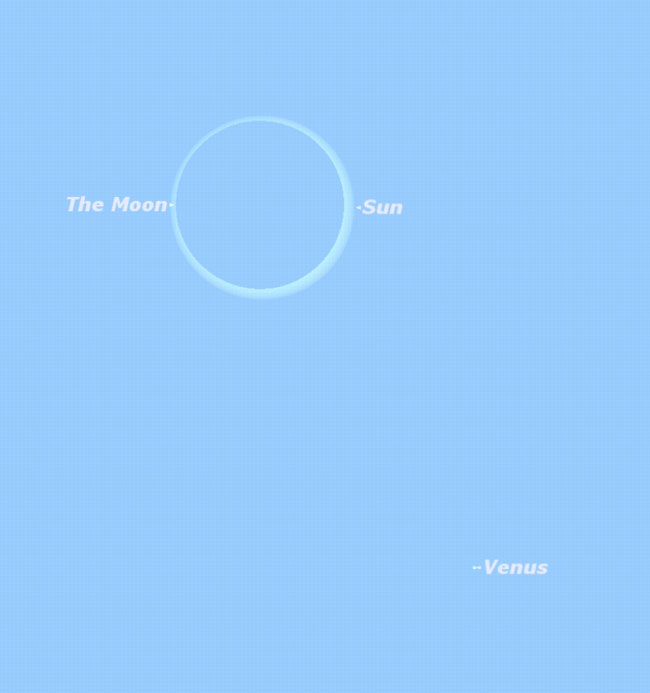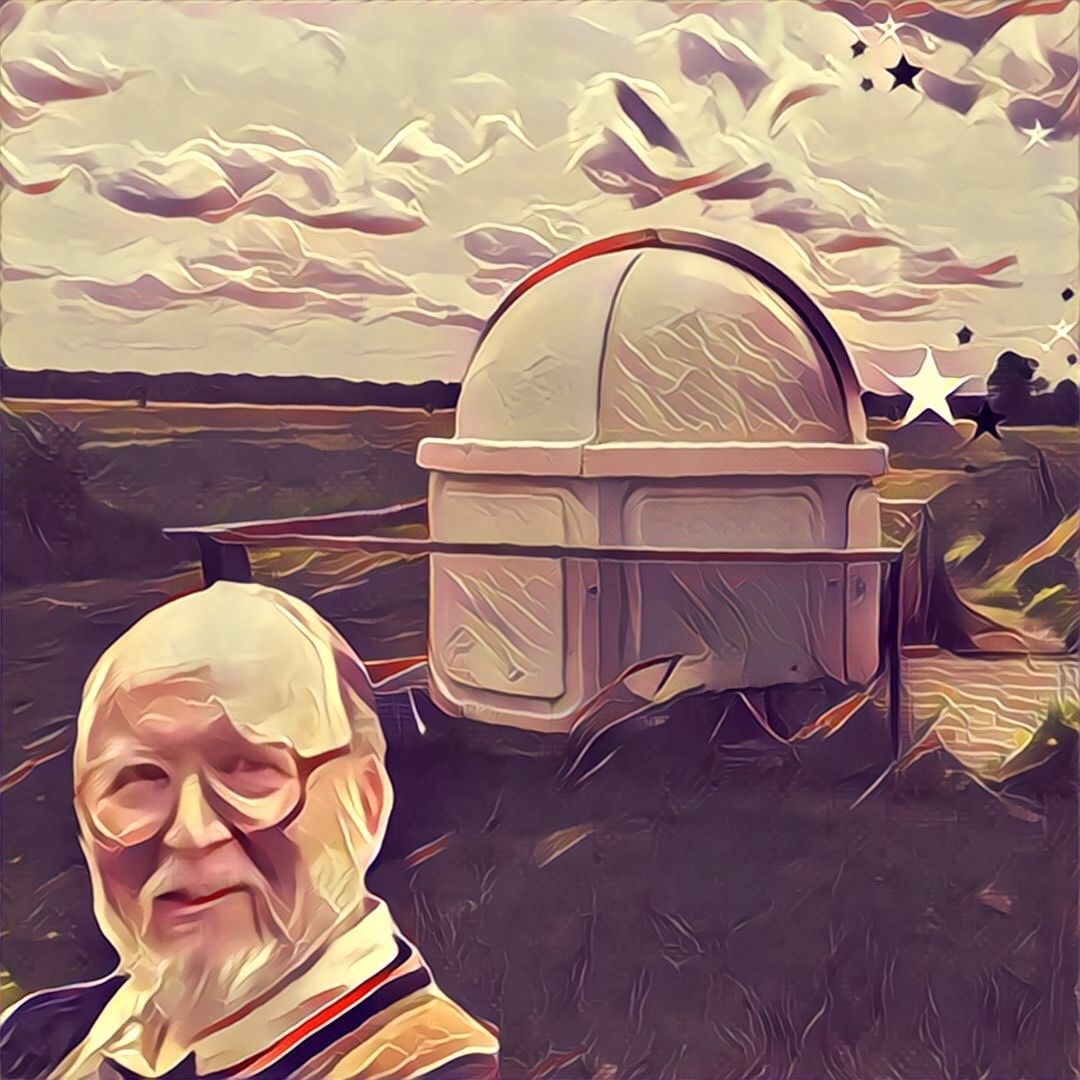Solar Eclipse to Grace Africa and Asia Friday

An annular eclipse of the sun will take place on Friday Jan.15. The solar eclipse path begins in central Africa, crosses the Indian Oceanto touch the southern tip on India, and then moves on to southeast Asia, endingin southeastern China.
A partial solar eclipse will be visible over much of Africaand Asia.
An annular eclipse is the "poor cousin" of a totalsolar eclipse. It occurs when the Earth is closest to the sun at the sametime as the moon is farthest from the Earth, so the moon isn't quite largeenough to totally cover the disk of the sun. As a result, even at maximumeclipse, a ring of the sun appears behind the moon, hence the name "annular."
Although not as spectacular as a total solareclipse, an annular eclipse is still an interesting event. Many of theevents of a total eclipse are present, including the dimming of the sun's lightand the effects on wildlife.
It is perhaps more dangerous than a total eclipsebecause the sun is never completely covered, so that there is no time duringthe eclipse when it can be safely viewed without a dense filter. If a specialsolar eclipse filter is not available, a No. 14 welder's glass can be used.Note that this is denser than the standard No. 12 welder's glass, and can onlybe purchased in specialized welding shops.
One good way to viewan eclipse safely is by placing a small mirror, less than an inch indiameter, on a sunny window ledge. This will project an image of the eclipsedsun into the room. The ground under a tree becomes a myriad of miniatureeclipse images, as the eclipsed sun peeks between the leaves.
Computer software like Starry Night allows stay-at-homeeclipse viewers to travel to any place along the eclipse path. As an example,we could virtually travel to Kampala, capital city of the landlocked Africancountry of Uganda.
Breaking space news, the latest updates on rocket launches, skywatching events and more!
Kampala, like Rome, is a beautiful city built on sevenhills. It is the home of Makerere University, the oldest university in EastAfrica. When the sun rises at 6:55 a.m. local time, the eclipse is just aboutto begin. At 7:06, the moon starts to cover the upper limb of the sun. At 8:25,the moon is centrally placed on the sun, and the full annular effect isvisible.
This would be a good time to try to spot Venus. Less thanone degree from the eclipsed sun, Venus is extremely bright. Use a roof edge toblock the sun, and see if you can spot Venus. By 10:04, the eclipse is over inKampala.
At the other end of the eclipse track, in Chongqing, China,the eclipse begins at 2:22 p.m. local time with the moon approaching from thelower right, and reaches maximum at 3:51 p.m.. Venus will be to the left of theeclipsed sun. The eclipse ends at 5:07 p.m., with the sun setting 10 minuteslater.
- Gallery:2008 Solar Eclipse
- More Night Sky Features from StarryNight Education
- HowSolar Eclipses Work
Thisarticle was provided to SPACE.com by Starry Night Education, theleader in space science curriculum solutions.

Geoff Gaherty was Space.com's Night Sky columnist and in partnership with Starry Night software and a dedicated amateur astronomer who sought to share the wonders of the night sky with the world. Based in Canada, Geoff studied mathematics and physics at McGill University and earned a Ph.D. in anthropology from the University of Toronto, all while pursuing a passion for the night sky and serving as an astronomy communicator. He credited a partial solar eclipse observed in 1946 (at age 5) and his 1957 sighting of the Comet Arend-Roland as a teenager for sparking his interest in amateur astronomy. In 2008, Geoff won the Chant Medal from the Royal Astronomical Society of Canada, an award given to a Canadian amateur astronomer in recognition of their lifetime achievements. Sadly, Geoff passed away July 7, 2016 due to complications from a kidney transplant, but his legacy continues at Starry Night.
